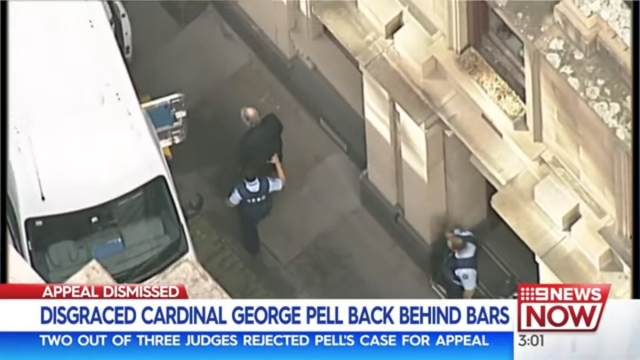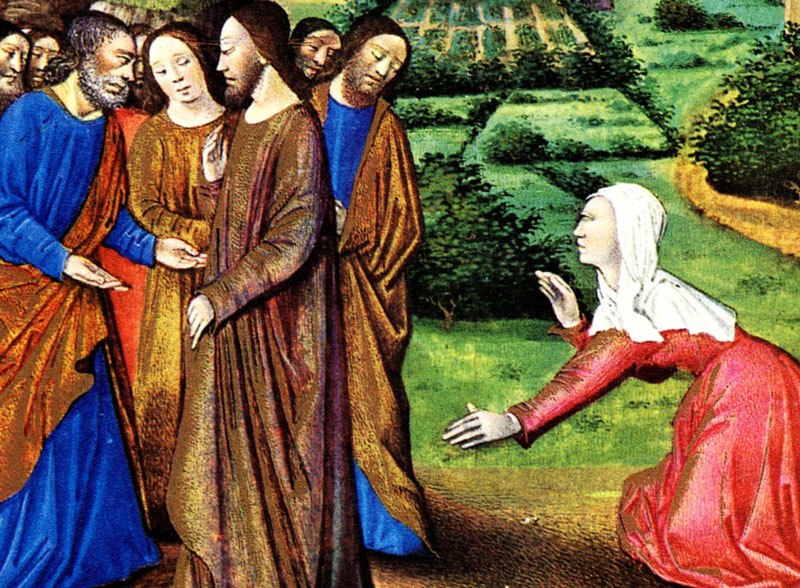In responding to the dismissal of Cardinal Pell’s appeal, one of the Church’s most ancient precepts is apposite: “In essentials, unity. In non-essentials, liberty. In all things, charity.”
In essentials: unity
Essentials refer to moral certainties — claims of faith and morality which constitute the essence of Christian belief. “God is three, and God is one,” is a good example. Or “Jesus Christ is true God and true man.”
There are no moral certainties in the Cardinal Pell case. None of us know if the Cardinal is guilty or innocent. None of us know if the complainant’s intentions are sincere or sinister. Only the Cardinal and the complainant know these things — unless you’re a mind-reader.
Hence there is no scope for unity in the Cardinal Pell case. The pope will never declare one way or the other what Catholics must believe in this matter. Cardinal Pell’s conviction, his guilt or innocence, are non-essentials. Which brings us to the second part of the ancient saying.
In non-essentials: liberty
You and I are entitled to disagree about Cardinal Pell. Jurors and judges disagree. Journalists and legal scholars disagree. The matter is clearly not open and shut. For what it’s worth, I believe the Cardinal is wrongfully convicted. I don’t say he’s innocent, because I don’t read minds. I say he was not proven guilty beyond reasonable doubt. He was convicted on the testimony of a single witness, without any evidence furnished to corroborate that testimony. On the contrary, there was lots of evidence which fosters reasonable doubt.
It’s a dangerous legal precedent, I think, to convict any person on the uncorroborated testimony of a single witness. However, there are voices in the media who insist we must not challenge court decisions. We should resist that sentiment. You and I live in a free society. We are free to criticise the government — include the judiciary. Courts can get it wrong, and we’re allowed to say that.
There are also voices in the Church who insist we must not defend the Cardinal. We should resist that sentiment too. “In non-essentials, liberty.” Such is the mind of the Church. Catholics are free to defend the Cardinal, and Catholics are free to condemn him. Clearly, people of good will are on both sides of this debate. Which brings us to the third part of the ancient saying.
In all things: charity
Consider the fearsome warning our Lord issues in today’s Gospel. I’ll paraphrase:
“Lord, Lord,” many will say at the end of their lives. “Don’t you know me? I ate and drank in your company. I was your disciple.”
“I do not know you,” the Master will reply. “Away from me!”
This dialogue could well refer to me and you. We eat and drink in his company at this very Mass. We go further. We eat his flesh; we drink his blood. We invoke his name; we call ourselves Christian. But when our time comes, and we stand before the Lord, will he recognise us?
Our prayers and worship may express our discipleship, but they are not its measure. Love is the measure of discipleship. We have to love Jesus, which means we must love our neighbour. Perhaps, in these trying times, we have neighbours who hate us. Love them anyway. It’s not so hard. Much of the hatred towards the Cardinal, towards the Church, is propelled by anger, and it’s a noble anger. A righteous anger, expressed on behalf of innocents: God’s little ones; our own kin! Charity demands that we recognise the good in our enemy’s anger. Charity demands that in the absence of evidence to the contrary, we presume the best of every stake-holder.
It’s nonetheless true that at times like this, the faithful can become shrill and defensive. Or, alternatively, we are cowed into silence. We must not dialogue with those temptations. Instead we must be courageous and charitable. We speak the truth with love, calmly and cheerfully. With faith and hope.
The Collect of today’s Mass is perfectly suited to that resolution:
O God, who cause the minds of the faithfulto unite in a single purpose,grant your people to love what you commandand to desire what you promise,that, amid the uncertainties of this world,our hearts may be fixed on that placewhere true gladness is found.
Where else is our true gladness found, but in Christ himself? Our Lord and our God; our Saviour and our Friend. In times like this, we have to cleave to him. That might mean reading the Gospels until peace is restored. It might mean praying the rosary. Or contemplating the Stations of the Cross. Or paying a visit to the Blessed Sacrament. Whatever works. Whatever enables us to live out that ancient saying: “In essentials, unity. In non-essentials, liberty. In all things, charity.”






Thank you so much. Reading this gave my heart peace as it was so logical. It was very helpful. I have shared it with many friends. God bless you.